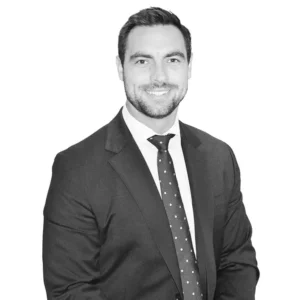Drifting
Growing up in small town Soldotna, Alaska, summers were centered around salmon fishing. One mile from my house was the Kenai River, home of the largest King salmon ever caught – 97lbs! The Kenai River is fast-moving, but some pockets might deceive you into thinking the water is not moving. If you were a novice (like me without my dad), you might drop your lines and choose to fish in these pockets for a while. But over time, if you weren’t paying attention, you’d look up and find yourself half a mile away from where you intended to fish. You had unknowingly drifted.
The concept of drift is why we create goals and mission/vision statements in the first place. Because if we’re not intentional, we drift. Life gets busy and fast. We fall into old patterns. We resort to unhealthy tendencies. We slowly move away from who we want to be.
New Year’s Resolutions
Despite our most valiant efforts, only 9%(!!) of Americans who make resolutions complete them. 23% of people quit their resolution by the end of the first week, and a whopping 43% quit by the end of January (source: Ohio State University).
The New Year is a natural time for us to reflect. To contemplate what was, what is, and what is to come. But oftentimes our resolutions become a huge letdown. We may get inspired by our friend’s social media posts, or we may ride the high of the holidays and commit to new habits and routines… but so often these promises of “New Year, New Me” fall flat on the ground.
Why do so many of these resolutions fail, and how may we harness the motivation and clean slate that a New Year brings, particularly when it comes to our finances?
The Who and the Why before the What and the How
When we sit down to write our New Year’s Resolutions, we often focus on the what and the how. “What do I need to change, what do I need to add or eliminate, how do I lose weight, how do I spend less” … But the reality is the what and the how are simply mechanics. Instead, our focus needs to be on who we want to become, and why we desire that changed state.
Rather than starting with “How do I spend less,” it might go something like this… “I desire to exhibit self-control and delayed gratification (think “who do I want to become”), and I resolve to spend less so that I’m not dependent on my children in retirement (the why).
There may be a particular trigger (“I realized I spent too much last year”), but we’re not trying to necessarily change the trigger (which oftentimes is out of our control anyway); with New Year’s Resolutions, what we’re really trying to change is ourselves (the who), and we need the motivation to stick with it (the why).
We are human beings after all. Over the year, it is natural to overspend our budget, to procrastinate our savings, and to fall prey to FOMO (Fear Of Missing Out). But by choosing to anchor to who we want to be, why we want to change, and then uncovering the what and the how we set ourselves up to avoid financial drift.
Your Turn
What are some ways in which you’d like to improve your financial hygiene in 2024? Perhaps you’d like to…
- Enjoy your wealth more
- Have a money conversation with your spouse to get you on the same page
- Set up a meeting with an attorney to get your estate documents in place
- Give a greater percentage of income
- Spend less in a certain area
- Automate your savings
- Eliminate out an expensive subscription service
- Get financially organized
You may choose to create goals for your net worth, income, spending, giving, or something else. Despite our lack of control over the economy, the market, and interest rates, we may have some control over these goals that we set. But as you create these goals, first consider who you want to be in 2024, and why you desire that changed state.
A Better Approach
Imagine my goal was to “get financially organized in 2024”. How uninspiring, vague, and unhelpful. Unless you’re someone who gets really jazzed about a financial organization (yours truly 😊), this goal will be trashed and forgotten about within the first week.
Instead, what if I framed it as “I am the leader of my household, and I am a steward of the wealth that has been placed in my possession. As a steward and leader of my house, I desire transparency and organization in my family’s financial life so that my spouse feels secure, we have peace of mind that our kids are protected, and we have a clear and confident understanding of where we can spend money.”
The why is so important. If you set a goal because “the internet told me I should set New Year’s Resolutions” then the motivation will be lacking. When you hit resistance, you’re likely to fail because your why isn’t strong enough. Set goals only if you really, truly desire change.
In fact, the non-profit organization LegacyMakers puts it this way: “When we break promises to ourselves, such as committing to a healthier lifestyle and then reneging, we unknowingly teach our brain to distrust our words, leading to a loss of motivation and vision.”
I could write an entire article on the psychology behind goal-setting and habit-building, how to do this effectively, and how to become a “better you” in 2024. I could talk about setting SMART goals (Specific, Measurable, Achievable, Relevant, Time-Bound), or preparing for overcoming barriers, or using celebration as motivation. There is a plethora of books on these topics, many of which are fantastic and well worth-reading.
But my humble opinion is this… before you set another goal or pick up another self-help book, take some time for introspection. Ask yourself the tough questions. Who do you want to be? Why does it matter? The answers you find will be the foundation for a transformative 2024.
We would love to hear some of your 2024 financial goals, along with the “why” behind them. Send them in to tom@thebahnsengroup.com!
Blaine Carver
Private Wealth Advisor
bcarver@thebahnsengroup.com
Trevor Cummings
PWA Group Director, Partner
tcummings@thebahnsengroup.com





